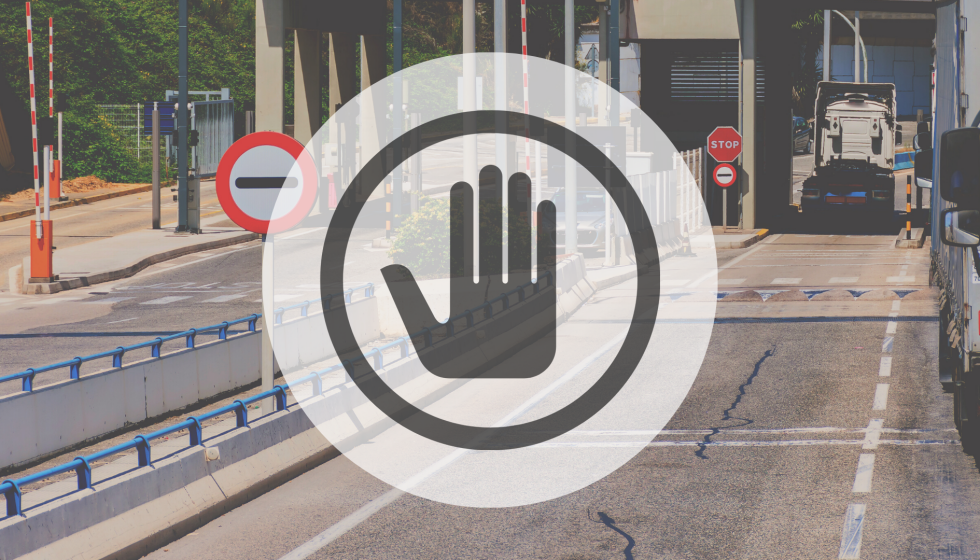Starting today, the passage of vehicles purchased by Ukrainians abroad is allowed only at three checkpoints. Such a decision is caused by an attempt to solve the problem of queues at the borders. However, there is another side, experts emphasize.
Decree of the Cabinet of Ministers of Ukraine No. 354-r dated May 3, 2022 defines the list of checkpoints through which citizens of Ukraine can import a car for personal use. These are Hrushiv and Ustylug checkpoints on the border with Poland (in the Lviv and Volhynia regions, respectively) and Maly Berezny on the border with Slovakia (in the Zakarpattia region).
It is about the registration of cars for personal use, and not for the needs of the army. In this way, the government plans to reduce queues at the border by decongesting large checkpoints for the passage of goods and humanitarian aid. However, there are several important points that should be paid attention to, says Levko Prokipchuk, ex-head of Lviv Customs, an expert on the practical application of customs legislation of the Association of Professional Customs Brokers.
First, there is the question of the so-called "car transporters", that is, trucks transporting cars. Since not all cars have the right or ability to move on the roads "at their own pace", logistics companies often delivered cars in groups of 6-8 units at a time. This is especially relevant at a time when the departure of men of military age from Ukraine is temporarily restricted. However, the infrastructure of the mentioned checkpoints, at which the passage of cars was allowed, is intended only for the passage of passenger cars and vehicles weighing up to 3.5 tons. " There may be a situation when "car transporters" will have to unload almost directly at the checkpoint, because there are simply no other options to transport the car, " — notes the expert in the comments of the Institute of Car Market Research.
Secondly, there remains the question of what to do with non-passenger vehicles. We are talking about trucks, tractors, trailers and semi-trailers, special equipment, buses, and other categories of transport that Ukrainians need. After all, the decree applies to all vehicles, not only cars under "zero" customs clearance. " The decision to register such vehicles exclusively at checkpoints, which do not have the appropriate infrastructure for this, can completely block their import ," says Levko Prokipchuk.
Thirdly, it is the impossibility of importing damaged cars, in particular from the USA, where most cars are bought at auctions after road accidents. And also — electric cars. All these categories of transport cannot move at their own pace, and the three designated checkpoints are not intended for the passage of carriages and motor carriers that transport them. Since the seaports are forced to temporarily shut down, the import of "Americans" may also be completely blocked.
It is also surprising why the adopted decision does not provide for the possibility of registration at the borders with Hungary and Romania in Zakarpattia and Chernivtsi regions.
As for other indirect consequences of such a decision regarding registration of cars at specific checkpoints, they may be:
- The formation of huge queues at three checkpoints, which lack the infrastructure to comfortably wait for oneʼs turn to cross the border, as, for example, in front of the Korchowa-Krakowiec checkpoint in Poland. In this way, a significant number of cars, even several tens of kilometers long, can be formed in the border towns and villages of Poland.
- Increase in the cost of delivery of cars from abroad. Inconveniences and significant downtime in the queue can lead to the formation of the price of transportation of one car at the level of $2,000, experts of the Institute of Car Market Research predict. Thus, taking into account the increase in the price of cars abroad, the price of cars imported under "zero" customs clearance may rise to the "pre-war" level.
- Reduction in the number of imported cars. The increase in the cost of delivery and significant difficulties in crossing the border will encourage the purchase of cars on the domestic market instead of "enslavement" from abroad.
At the same time, queues at other checkpoints may not decrease significantly, the experts of the Institute of Car Market Research are sure. After all, the main reason for the queues is, first of all, the change of logistics chains — all the load fell on ground checkpoints with the countries of the European Union. Therefore, the solution to long queues should first of all be sought in the simplification of formalities and the automation of processes during the passage of vehicles at the border, experts are convinced.



